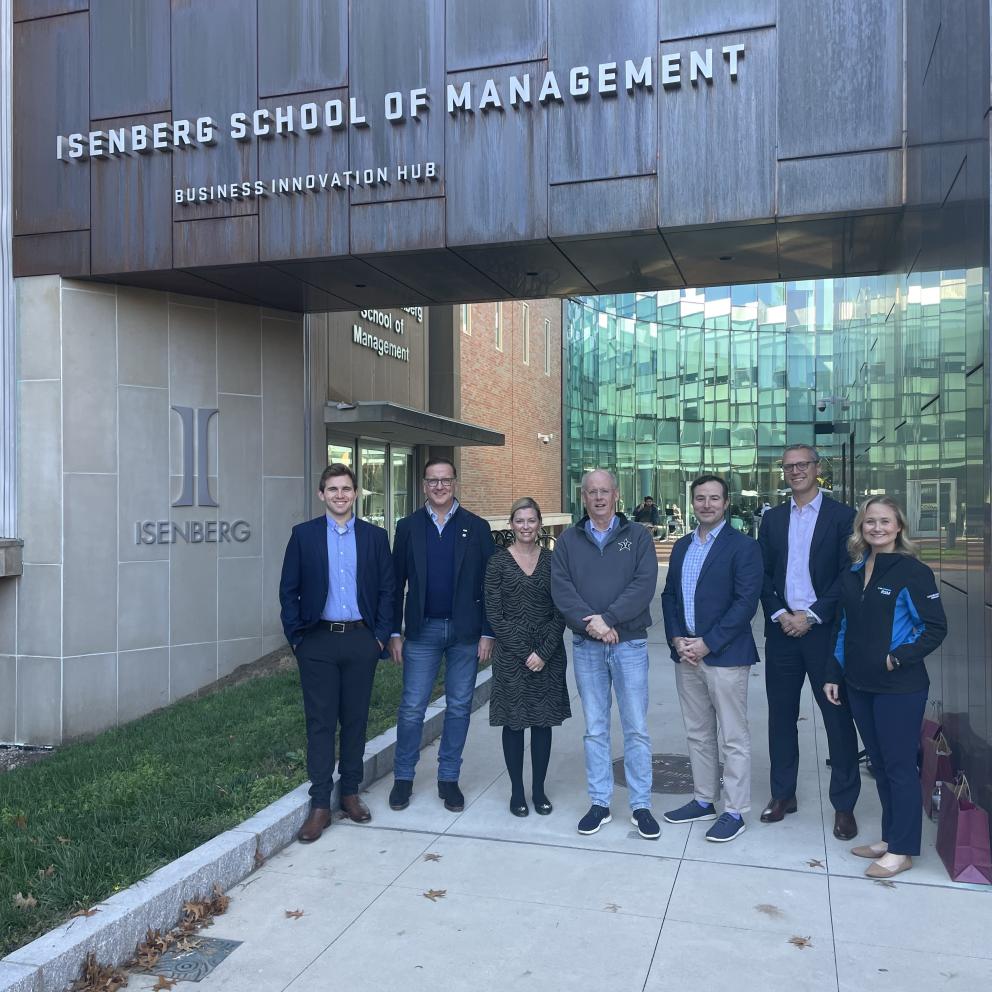The Importance of ‘Soft Skills’: Panel of Accounting Alumni Speaks to More Than 800 Isenberg Students
January 18, 2023

Over two days in early November, 14 UMass Amherst alumni shared valuable insights on accounting careers in a panel discussion that drew more than 800 Isenberg School of Management students.
The students, all enrolled in Senior Lecturer Kerri Bohonowicz’s Accounting 221 course, took the opportunity to ask the panelists about life as accounting professionals as well as their experiences entering the workforce after college.
“The panel format allowed the event to be student-focused and student-led,” Bohonowicz said. “The students came up with the questions that they wanted to ask.”
According to Bohonowicz, the idea for holding the panel stemmed from the relationship between the Isenberg accounting department’s alumni advisory council and the department’s chair, David Piercey. Many of these alumni request to speak to Accounting 221—an introductory-level course that is mandatory for all Isenberg students—because they see it as an opportunity to advise non-accounting majors or undecided students about their careers.
“We had so many requests coming in from the council as well as recruiters who wanted to speak to my class about careers in accounting, so we decided to coordinate a panel instead of having them come in one by one,” Bohonowicz said.
Learning from the Experiences of Others
The panelists ranged in age and experience and represented many renowned organizations, such as Deloitte and Ernst & Young. According to Bohonowicz, the students were most interested in the general advice the panelists had about working in business after college.
Bohonowicz said students connected to stories of hardship and struggle, such as Dan Lipton’s from Ernst & Young. Lipton had had a job lined up after graduation, he told students, but had to readjust after the business failed unexpectedly.
“Some of the advice he gave was to be curious and confident,” Bohonowicz said. “They really focused on those soft skills that students should have when they enter the workforce.”
Sophomore Rachel Goland, an operations and information management major, said one of the event’s most interesting takeaways was that “each panelist came from a different walk of life that led them to their profession.”
“I strongly believe that it is vital for students to be exposed to professionalism as early as possible throughout their college career,” Goland said. “Coming from experience, I appreciate every opportunity to speak to established professionals, learn about their journey and apply what they have learned to my future endeavors.”
Student Questions

Goland said she was curious about how the concept of teamwork manifests when working in the accounting field, as well as how accounting complements other placements within a firm. She said it’s important to “enter the modern day workforce understanding the placements within your work environment, and how any role has the ability to complement and support yours.”
While Goland explained that she’s not interested in an accounting career herself, she said the panel “provided a more holistic view on how firms function and how accounting thrives within companies.”
Bohonowicz said that going forward, she wants to hold the panel discussions every year and maybe even once a semester. She said the panelists enjoyed making connections with Isenberg students and with each other.
“There were also a few students who said it was the best guest speaker event that they’d ever been to—they wish I could do it more, so that was good to hear,” she said. “The goal of the event was not only to attract students to a career in accounting, but also to provide general career advice that would appeal to any business major. The general feedback was that the advice they were getting from the panelists could apply to any career because it was so focused on those soft skills.”